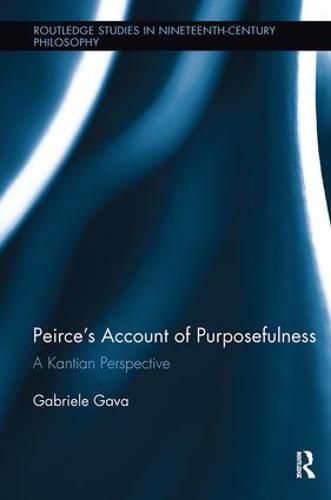Readings Newsletter
Become a Readings Member to make your shopping experience even easier.
Sign in or sign up for free!
You’re not far away from qualifying for FREE standard shipping within Australia
You’ve qualified for FREE standard shipping within Australia
The cart is loading…






This book presents a systematic interpretation of Charles S. Peirce’s work based on a Kantian understanding of his teleological account of thought and inquiry. Departing from readings that contrast Peirce’s treatment of purpose, end, and teleology with his early studies of Kant, Gabriele Gava instead argues that focusing on Peirce’s purposefulness as a necessary regulative (in the Kantian sense) condition for inquiry and semiotic processes allows for a transcendental interpretation of Peirce’s philosophical project. The author advances this interpretation through presenting original views on aspects of Peirce’s thought, including: a detailed analysis of Peirce’s ‘methodeutic’ and ‘speculative rhetoric,’ as well as his ‘critical common-sensism’; a comparison between Peirce’s and James’ pragmatisms in view of the account of purposefulness Gava puts forth; and an examination of the logical relationships that order Peirce’s architectonic classification of the sciences.
$9.00 standard shipping within Australia
FREE standard shipping within Australia for orders over $100.00
Express & International shipping calculated at checkout
This book presents a systematic interpretation of Charles S. Peirce’s work based on a Kantian understanding of his teleological account of thought and inquiry. Departing from readings that contrast Peirce’s treatment of purpose, end, and teleology with his early studies of Kant, Gabriele Gava instead argues that focusing on Peirce’s purposefulness as a necessary regulative (in the Kantian sense) condition for inquiry and semiotic processes allows for a transcendental interpretation of Peirce’s philosophical project. The author advances this interpretation through presenting original views on aspects of Peirce’s thought, including: a detailed analysis of Peirce’s ‘methodeutic’ and ‘speculative rhetoric,’ as well as his ‘critical common-sensism’; a comparison between Peirce’s and James’ pragmatisms in view of the account of purposefulness Gava puts forth; and an examination of the logical relationships that order Peirce’s architectonic classification of the sciences.